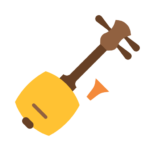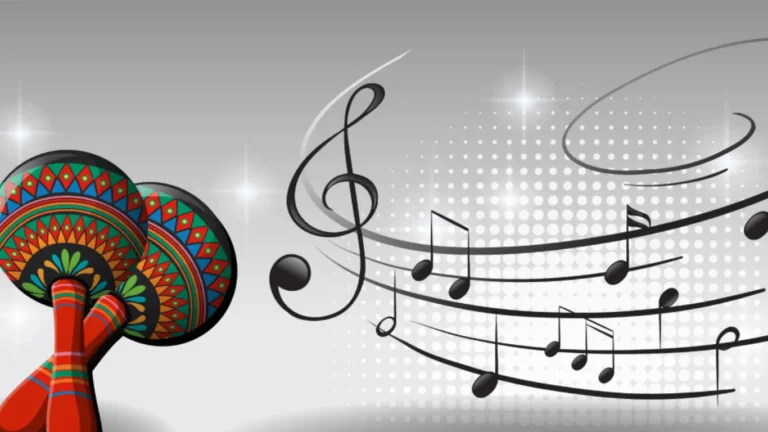Music is a universal language that connects people across boundaries, offering not only entertainment but also numerous cognitive, emotional, and social benefits. For adults, engaging in music-related activities can boost mental well-being, enhance creativity, and foster connections with others. Whether you’re looking to explore music as a hobby, seeking group activities, or interested in music therapy, there’s something for everyone. This article covers a range of music activities for adults, including those with learning disabilities, and provides a comprehensive guide on how to find the right fit for you.
Music Activities for Adults: Benefits and Ideas
Music is more than just a form of entertainment; it has the power to stimulate the brain, improve mood, and enhance cognitive function. For adults, participating in music activities can be both therapeutic and enjoyable. Some of the benefits of engaging in music activities include:
- Mental Health Improvement: Music can have a profound impact on mental health, reducing anxiety and stress while promoting relaxation.
- Cognitive Enhancement: Playing an instrument or even just listening to music can improve memory, concentration, and problem-solving skills.
- Social Connection: Group music activitieshelp build relationships and foster a sense of community.
- Creativity and Expression: Music allows adults to express their emotions and creativity in a way that words sometimes cannot.
Read More: Adult Music Lessons
Music Activities for Adults with Learning Disabilities
Music has proven to be an effective tool for adults with learning disabilities. Research shows that musical activities can help improve motor skills, communication, and emotional regulation. Here are some music activities tailored for adults with learning disabilities:
- Instrument Play: Playing simple instruments like drums, tambourines, or xylophones helps improve motor skills and coordination.
- Music and Movement: Activities combining music with movement, such as dance or rhythm exercises, are excellent for physical coordination and emotional expression.
- Singing: Vocal activities, whether individual or in groups, can help with speech development, breathing techniques, and emotional expression.
- Music-Based Therapy: Specialized music therapy for adults with learning disabilities helps them improve social skills, self-expression, and cognitive abilities in a controlled, supportive environment.
Read More: The Top Choice for Music Lessons Barrie
Music Group Activities for Adults: A Fun Way to Connect
Group music activities offer a social dimension that is beneficial for adults looking to connect with others. These activities can take various forms, from informal jam sessions to more structured group classes. Some popular options include:
- Group Singing: Choirs, vocal ensembles, or even informal singing groups allow adults to bond over a shared love of music. Group singing can improve vocal technique and enhance mood.
- Drum Circles: Participating in a drum circle can be a great way to experience rhythm and connection with others in a fun, non-judgmental environment.
- Music Jam Sessions: Whether it’s rock, jazz, or folk music, jam sessions allow musicians to improvise and create music together. They offer a great space for collaboration and creativity.
- Group Lessons: Many music schools or community centers offer group music lessons for adults. These classes can range from learning to play an instrument to more advanced music theory classes.
Read More: Piano Lessons Toronto for Adults
Music Therapy Activities for Adults: Healing Through Sound
Music therapy is a professional therapeutic approach that uses music to address physical, emotional, cognitive, and social needs. Music therapy activities for adults can be particularly beneficial for those dealing with stress, trauma, or other mental health challenges. Some common music therapy activities include:
- Listening to Music: Therapists may use specific genres of music to evoke emotions, help with relaxation, or prompt memories.
- Improvisation: Creating music on the spot through improvisation can help individuals explore their feelings and develop communication skills.
- Songwriting: Writing lyrics or creating music provides an outlet for emotional expression and can help individuals process difficult feelings.
- Music-Assisted Relaxation: Using calming music combined with guided relaxation techniques can help reduce anxiety and improve focus.
Read More: The Best Online Music Learning with Navasaz
Finding the Right Music Activity for You
Choosing the right music activity depends on your personal interests, goals, and needs. Whether you’re looking for individual lessons, group interactions, or therapeutic support, there are many options available. If you’re someone interested in traditional music, especially from other cultures like Persian music, there are specific music academies that offer specialized courses.
Navasaz: A Music Academy for Personalized Learning
One such institution is Navasaz, a renowned music academy that focuses on teaching traditional Persian music. Navasaz offers both individual and group classes, providing a personalized approach to learning. Students can choose to take classes in-person or online, making it accessible to people worldwide. The academy tailors its courses based on the individual’s learning plan and goals, ensuring that each student receives the attention and resources they need. Whether you are a beginner or an advanced student, Navasaz can help you master the rich heritage of Persian music.
Final Thoughts
Music activities for adults are a wonderful way to engage both your mind and body while improving your mental health, social connections, and creativity. Whether through group activities, learning an instrument, or even exploring music therapy, there are numerous benefits to engaging with music at any age. And for those interested in learning more about traditional Persian music, Navasaz is an excellent choice that offers customized lessons and group experiences for a truly enriching musical journey.
FAQs
Music has been shown to lower stress levels, reduce anxiety, and help improve mood. It provides an outlet for self-expression and can even help alleviate symptoms of depression.
Group music activities provide a sense of community and social connection. They also offer an opportunity to collaborate creatively, improve communication, and build relationships through a shared love of music.
Yes, music can stimulate the brain, improve memory retention, and enhance cognitive functions. Playing an instrument or listening to music regularly can even delay cognitive decline in older adults.
That’s okay! Many music activities, especially group ones, don’t require prior experience with reading music or playing instruments. There are plenty of beginner-friendly options such as singing, drumming, or music-based movement activities.
Absolutely! Persian music has a rich tradition that can be accessible to beginners. Whether you’re interested in learning to play Persian instruments like the tar, setar, or daf, or want to focus on vocal techniques, Navasaz offers personalized courses for all skill levels.
Music therapy can benefit adults with a variety of conditions, including stress, trauma, memory issues, and even physical rehabilitation. It’s always best to consult with a licensed music therapist to determine how music therapy can be tailored to your individual needs.
Yes, many music academies, including Navasaz, offer online lessons. This makes it easy to access professional instruction regardless of your location, allowing you to learn at your own pace.
 String Instr
String Instr Percussion Instr
Percussion Instr Wind Instr
Wind Instr Keyboard Instr
Keyboard Instr Tools
Tools Books
Books

